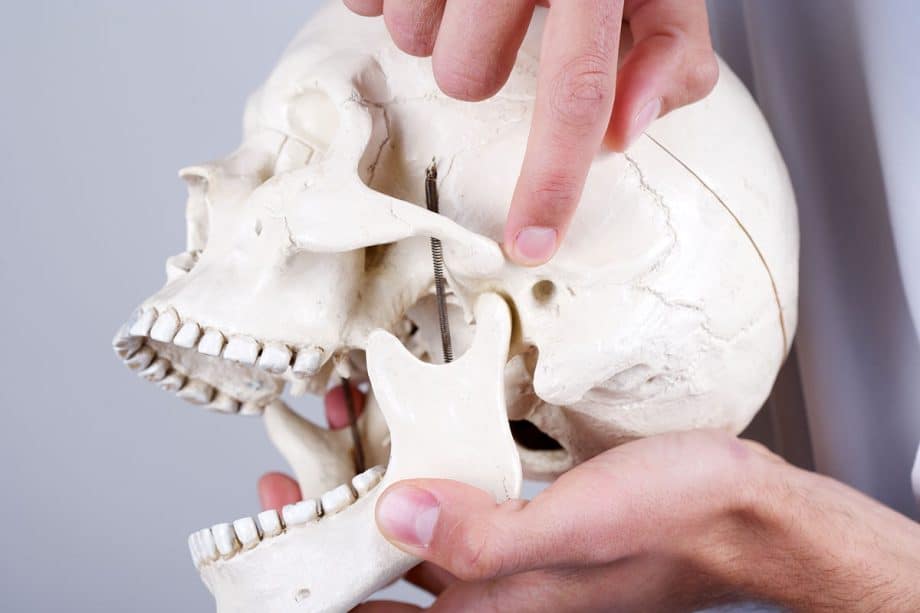For many patients, TMJ disorders can be a significant source of stress. TMJ stands for the temporomandibular joints connecting the lower jaw and skull. TMJ can cause painful symptoms in the jaw, face, and ears and negatively impact patients’ quality of life.
Pain Relief Options for TMJ
TMJ typically responds to supportive, non-invasive treatments. In the most severe cases, oral surgeons can operate.
Diet Changes
If you experience a TMJ flare-up, eat softer foods to avoid stress on your jaw muscles. Avoid chewy or hard foods like candy, steak, and beef jerky. Do not chew gum.
Movement Adaptations
Try to reduce jaw movements as much as possible. Avoid singing loudly or yelling, and restrict how much you open your mouth when you yawn.
Repetitive habits may cause jaw tension. Avoid chewing your nails, cheeks, and lips, and do not rest your jaw in your hand.
Stretching Exercises
Your oral surgeon can teach you various gentle stretches that help with TMJ.
Cold Therapy
Putting cold packs on your jaw and the outside of your cheek can help with swelling and pain.
Control Teeth Grinding
If you have bruxism (chronic teeth grinding), do everything possible to control this habit. Your dentist can create a custom night guard that keeps your jaws in place and prevents tooth damage and strain on the jaw.
Surgery
Oral surgeons can correct TMJ dysfunction and relieve your symptoms with surgery. However, you will likely try non-invasive methods first.
Common TMJ Symptoms
- Jaw pain
- Ear pain
- Ringing in the ears
- Jaw popping and clicking when accompanied by pain
- Locking jaw
- Inability to fully open the mouth
- Temple or cheek pain
- Tooth pain
- Headaches
Causes of TMJ
TMJ may not always have a clear cause, but these are the four most common triggers:
Arthritis
Many patients with arthritis develop TMJ pain. As the joint degrades, movement becomes increasingly painful, and muscles become strained.
Disc Issues Inside the Joint
A displaced or damaged disc can lead to severe TMJ symptoms.
Jaw Injury
A jaw injury such as a blow to the face, a fall, or a car accident is a common trigger for TMJ.
Stress
Researchers are beginning to understand the deep connection between TMJ and stress. Stress and tension cause patients to clench their teeth and jaws, putting pressure on the TMJ joints and causing inflamed muscles.
Frequently Asked Questions About TMJ
Can TMJ be cured?
Complete symptom relief is possible. Many patients feel relief after changing their habits and lifestyles. Others need medication or surgery.
If my jaw pops and clicks but doesn’t hurt, is it TMJ?
Some jaw noises are harmless. If your jaw does not hurt when it pops or clicks, you may not have TMJ. Visit an oral surgeon for a diagnosis.
Call Upper West Side Oral & Maxillofacial Surgery
TMJ pain can keep you from enjoying your daily life. Please don’t wait to call our Manhattan office to start the treatment process. We would enjoy meeting you and helping you understand your options. Don’t hesitate to get in touch with our office at 212-466-6984 today.



